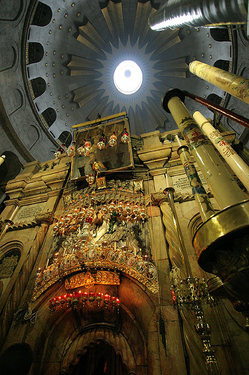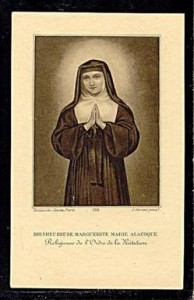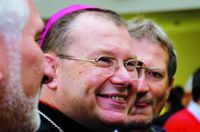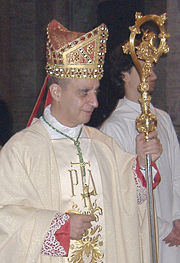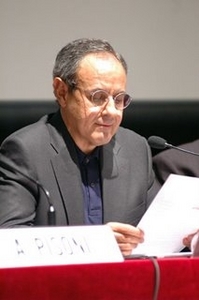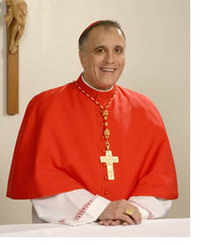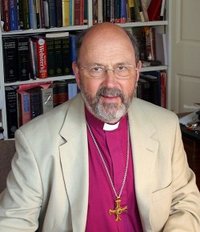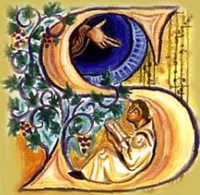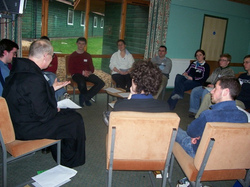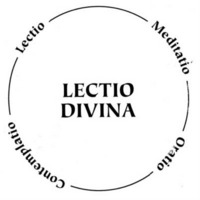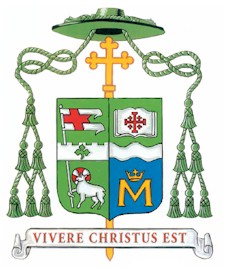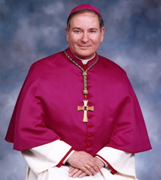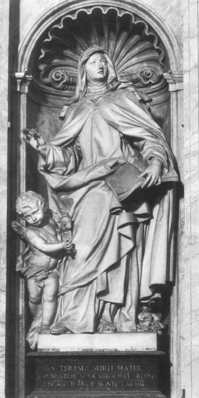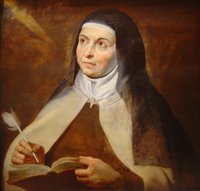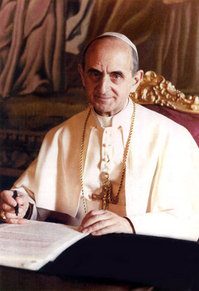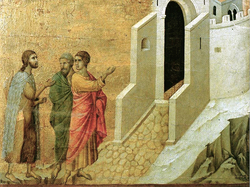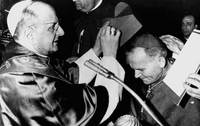Card. Angelo Scola, Patriarch of Venice
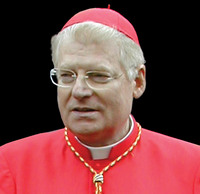 Dei Verbum, 25 exhorts all the faithful “to move voluntarily towards the sacred text through pious reading (“per piam lectionem”)”, linked to prayer: “so that dialogue between God and man may take place”. Pious reading is not merely study, but a personal relationship with the Lord, because “one can read the Bible without faith, but without faith one cannot scrutinize the Word of God” (IL 26a). Sacred Scripture is the inspired and normative testimony of revelation. The source of the testimony of Scripture is Jesus Christ himself, the faithful witness of the Covenant of God with men. The testimony of the work of salvation of Jesus is at the origin of Scripture. Therefore this can only be adequately understood by the witness. So to be pious, the reading of Scripture has to pass from Witness to witness. The category of witness places the Church in the front line as the subject of pious reading. This is the road of realism that avoids every fundamentalist and intellectual drift, obstacles in reading that exclude the witness of the Church, where the Word is heard in faith. This understanding of Scripture guarantees the primacy of the personal meeting with Christ, against every reduction of the Word of God to a book.
Dei Verbum, 25 exhorts all the faithful “to move voluntarily towards the sacred text through pious reading (“per piam lectionem”)”, linked to prayer: “so that dialogue between God and man may take place”. Pious reading is not merely study, but a personal relationship with the Lord, because “one can read the Bible without faith, but without faith one cannot scrutinize the Word of God” (IL 26a). Sacred Scripture is the inspired and normative testimony of revelation. The source of the testimony of Scripture is Jesus Christ himself, the faithful witness of the Covenant of God with men. The testimony of the work of salvation of Jesus is at the origin of Scripture. Therefore this can only be adequately understood by the witness. So to be pious, the reading of Scripture has to pass from Witness to witness. The category of witness places the Church in the front line as the subject of pious reading. This is the road of realism that avoids every fundamentalist and intellectual drift, obstacles in reading that exclude the witness of the Church, where the Word is heard in faith. This understanding of Scripture guarantees the primacy of the personal meeting with Christ, against every reduction of the Word of God to a book.
Rev. Father Adolfo Nicolás, S.I., Superior General of the Society of Jesus
In these days of the Synod we have heard a good number of those aspects that make the
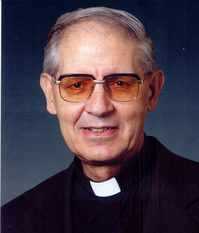 Holy Scriptures such a precious gift from God.
Holy Scriptures such a precious gift from God.
And yet we continue to feel that there will always be new or unanswered. The questions that reach us most often are of a pastoral character. The people of God continue to ask the pastoral question: How can we read the Scriptures so that they produce in us, in our hearts, in our families and in our communities all the good effects that Christian Tradition has proclaimed through the Centuries?
Allow me to address just one concrete aspect within the wider pastoral breadth of the question. This aspect is the so-called “Medicinal” or “Transforming” power of the Word of God. It is my conviction that the Word of God can claim in a high degree a ”therapeutic” role in the life of the Christian community.
Every time we “enter” the World of the Bible, we are exposed to a New World: God’s World; God’s action; God’s teaching of his people. The encounter, if real, can be shocking, surprising, enlightening, soothing or consoling. It can also be misunderstood and lost.
Thus the conditions of the encounter are all important. Pastors and Ministers of the Word have to become good helpers for good and fruitful encounters. We need to know where people really are (diagnosis); we need the skills for presenting the Word (teaching, preaching, biblical catechesis); we are expected to be good company in the search for depth (contemplation); and we are ordained or commissioned for good Christian leadership (service of love for community and Christian living).
Which means that Pastors and Ministers of the Word need training for good diagnosis, for wise application of forms of reading, for deeper prayer and interiorization of the Word of God, and for a meaningful accompaniment that helps the faithful discern the action of the Spirit in and through the reading of the Bible.
Since this is a fine skill that requires deep spiritual sense, adequate training and discerned commissioning, it seems highly needed that this training be included in the preparation for pastoral minis1ry and in programs of ongoing formation for all Priests. Moreover all Parishes and/or Dioceses should have access to Centers or Trained persons that can offer this service to individuals or communities and who can train catechists and other lay ministers in this important service.
Card. Leonardo Sandri, Prefect of the Congregation for the Oriental Churches
1. I thank the Lord and the Church for the powerful return to the Word of God, thanks to
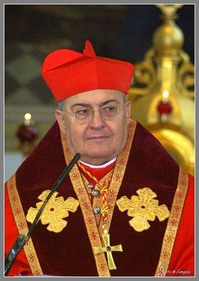 the impulse of Vatican Council II. That was a Biblical renewal according to the Life-Giving Tradition of the Church. That renewal is still ongoing, and it may receive helpful stimuli from the Synod. I thank the Holy Father for this convocation that involves us in a collegial discipleship dealing with the Divine Word. Making ourselves listeners to and disciples of Christ, who speaks in the Church (Ipse loquitur duro sacrae Scripturae in Ecclesia leguntur … SC 7), we offer the highest example of our being “Christian shepherds”: the Word of God is the evangelical gate by which we enter the fold. Whoever does not enter by this gate is a hired man not a shepherd (cf Jn 10:2).
the impulse of Vatican Council II. That was a Biblical renewal according to the Life-Giving Tradition of the Church. That renewal is still ongoing, and it may receive helpful stimuli from the Synod. I thank the Holy Father for this convocation that involves us in a collegial discipleship dealing with the Divine Word. Making ourselves listeners to and disciples of Christ, who speaks in the Church (Ipse loquitur duro sacrae Scripturae in Ecclesia leguntur … SC 7), we offer the highest example of our being “Christian shepherds”: the Word of God is the evangelical gate by which we enter the fold. Whoever does not enter by this gate is a hired man not a shepherd (cf Jn 10:2).
[…]
2. Constant personal and community commitment in favor of all Biblical initiatives in the academic field, such as in ordinary Catholic education and making the daily pastoral an act of obedience to the Word, are to be encouraged in attachment to the Word. The Word of God will always lead us to the Sacrament, especially the Holy Eucharist, from which springs forth ecclesial communion. From the perspective of daily obedience, I would like to highlight the importance of the further study and personal appropriation of the Word of God after the liturgical proclamation.
3. The priority of Biblical formation in all the categories of the people of God should be reaffirmed. The criterio princeps, though, in the approach to the Biblical sciences should be that they do not negate, through their sometimes exaggerated criticism, the sense of an existential meeting with Christ. What is indispensable, therefore, is the zeal of the shepherds, above all in the homily, and in order not to extinguish the prophetic charge of the Word of God, we have to insist that it never transforms itself into an opportunity for secular or even personal argumentation, and that it be the moment of highest obedience to the Word in a true sense for the preachers of the Word. Formation in the seminaries and ordinary updating of the clergy and of us bishops remain a priority and should be accompanied by the “prayerful” Biblical spirituality, in which we decide ever more each day to look for and find Christ and with Him the brothers we should lead with us on a daily basis in obedience to the faith.
[…]
5. The Eastern Churches were able to evangelize cultures that were very far from the thinking of Christ and generate admirable liturgical, theological and spiritual traditions, lived by disciples who were faithful to the point of martyrdom. I render homage to those who remain faithful to the Word of Christ, especially in the East, in the darkest adversities of the present, and I unhesitatingly invite the Synodal Fathers to pray as brothers and as shepherds for the present and future of the Christian East. Thank you.
Rev. Father Carlos Alfonso Azpiroz Costa, O.P., Master of the Order of Preachers
The “primacy” of the Holy Scripture has its basis precisely in Trinitarian life.
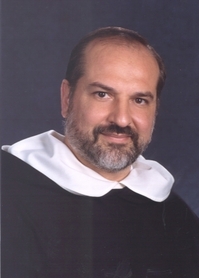 The great Medieval Doctors (Saint Albert the Great, Saint Bonaventure, Saint Thomas Aquinas) fully understood this; for them, the procession of people, within the unity of the divine essence is “the cause and the explicit reason of the procession of the same creatures.” The Word, genitus creator, has from the Father the will to make itself flesh and to suffer for us ab aeterno.
The great Medieval Doctors (Saint Albert the Great, Saint Bonaventure, Saint Thomas Aquinas) fully understood this; for them, the procession of people, within the unity of the divine essence is “the cause and the explicit reason of the procession of the same creatures.” The Word, genitus creator, has from the Father the will to make itself flesh and to suffer for us ab aeterno.
God wished to reveal Himself to mankind in human form, through human culture, people and languages and through the very life of Jesus. While this form is for us a guarantee of the value of our nature , of history and of human cultures – with their different languages – it also poses complex problems of interpretation.
As the reality of the creation is not rationally understandable without an adequate grounding in metaphysics – l’analogia entis – so knowledge of the Holy Scripture requires profound knowledge of the cultures and literary genres in which it was expressed; thus making possible a less inadequate perception of its literal sense and also the recognition of the analogical quality of the terms used.
[…]
Christian faith, for all the fact that it is “religion”, must first of all be considered as “religion of the Spirit”, because the New Testament is principally the same Holy Spirit which in us produces charity and only secondarily, being “letter” may be considered “religion of the Book”.
This process of revelation and of salvation is also the unveiling of the veritas iustitiae of our life, of the justice of God which is the foundation of the truth of our being and which is, for us, above all “justifying justice” that is to say based on its mercy which is the permanent precondition of divine justice, because it is the first root and also its crowning.
Card. Philippe Barbarin, Archbishop of Lyon
In the Bible, all must be read! At the heart of the Word of God, Scripture is a source that
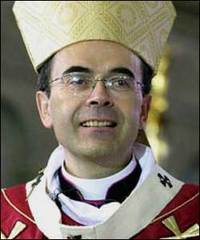 irrigates the path of the Church. The liturgy of the Word must be surrounded by a beautiful solemnity, this is a requirement, because this is the usual meeting place between God and His people. The liturgical readings should be chosen with one essential criteria in mind: unity of the message offered by the Word. Even if the cutouts pose various questions, certain absences pose greater and more questions. This is due to the rooted fears that one must give up.
irrigates the path of the Church. The liturgy of the Word must be surrounded by a beautiful solemnity, this is a requirement, because this is the usual meeting place between God and His people. The liturgical readings should be chosen with one essential criteria in mind: unity of the message offered by the Word. Even if the cutouts pose various questions, certain absences pose greater and more questions. This is due to the rooted fears that one must give up.
[…]
An eyewitness of the Transfiguration, he recalls that Scriptures allow us to learn about the Presence of Our Lord. Its objective is to not lose the memory, or contact with Scriptures, the accomplishment of Jesus’ life. This word contains, so as to say in the Bible, the value of a spiritual testament given to the entire Church: Beware of pride that will lead you to thinking that the ancient words are no longer of any interest. On the contrary we must hold “more firmly to the prophetic word”. This exhortation is not displaced only for the Jews, Does this not welcome the prophetic word especially as a renewed invitation in obeying the Torah? In truth, the prophets remind us that God can freely burst in on the life of His people. Let us therefore hold on to their word more firmly, after Jesus showed us its meaning and depth.
It is always up to the son of the centuries, we have seen this sad tendency to “forget” the Holy Scriptures in the Christians, to look at them like “sophisticated fables”. On the contrary, we need “through the Holy Spirit, that men continue to speak to us on behalf of God”. The Scriptures remain “a shining lamp” in our present shadows. She keeps us in humility, “waiting for the day to shine and the morning star to rise in our hearts”.
This is why, until the coming of the Lord, we must continue reading all Scriptures.
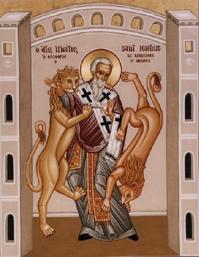 you, that by a unanimous obedience you may be perfectly joined together in the same mind, and in the same judgment, and may all speak the same thing concerning the same thing, 1 Corinthians 1:10 and that, being subject to the bishop and the presbytery, you may in all respects be sanctified.
you, that by a unanimous obedience you may be perfectly joined together in the same mind, and in the same judgment, and may all speak the same thing concerning the same thing, 1 Corinthians 1:10 and that, being subject to the bishop and the presbytery, you may in all respects be sanctified. Wherefore it is fitting that you should run together in accordance with the will of your bishop, which thing also you do. For your justly renowned presbytery, worthy of God, is fitted as exactly to the bishop as the strings are to the harp. Therefore in your concord and harmonious love, Jesus Christ is sung. And man by man, become a choir, that being harmonious in love, and taking up the song of God in unison, you may with one voice sing to the Father through Jesus Christ, so that He may both hear you, and perceive by your works that you are indeed the members of His Son. It is profitable, therefore, that you should live in an unblameable unity, that thus you may always enjoy communion with God.
Wherefore it is fitting that you should run together in accordance with the will of your bishop, which thing also you do. For your justly renowned presbytery, worthy of God, is fitted as exactly to the bishop as the strings are to the harp. Therefore in your concord and harmonious love, Jesus Christ is sung. And man by man, become a choir, that being harmonious in love, and taking up the song of God in unison, you may with one voice sing to the Father through Jesus Christ, so that He may both hear you, and perceive by your works that you are indeed the members of His Son. It is profitable, therefore, that you should live in an unblameable unity, that thus you may always enjoy communion with God.